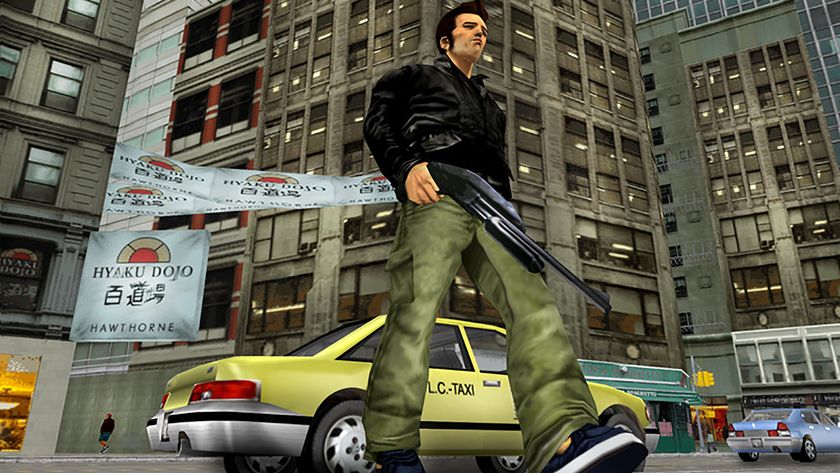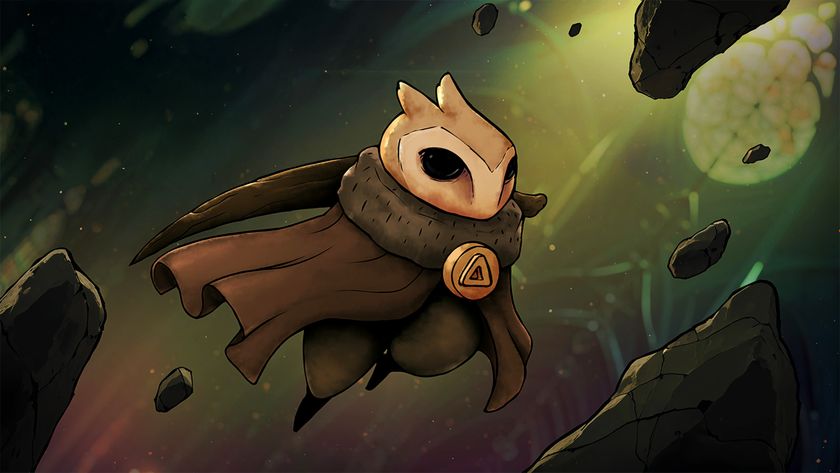It's like "having a silent conversation with the player": why video game makers love secrets
We can't seem to stop hunting for secrets in our favorite games, but why do developers love making them so much?
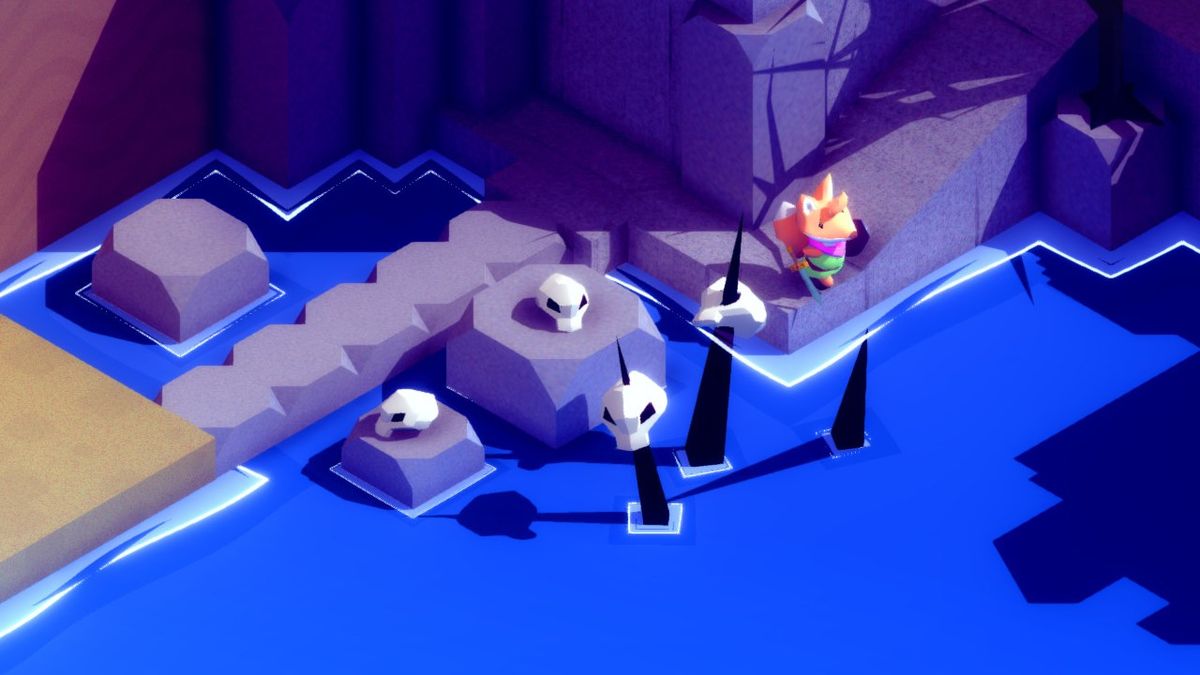
Video games are obsessed with secrets. Not only ones like release dates and surprise sequel announcements, but the kinds that reward you for pausing to peer into a corner as others rush by on the way to their next objective. For one elaborate example, look at Wolfenstein: The New Order. It hid a perfect recreation of Wolfenstein 3D's first level within its hub area (just go up to BJ's sad little sleeping corner and take a nap to try it out). Then when Id Software went to start over fresh with Doom, it couldn't leave Machine Games' clever repurposing of its own decades-old assets unanswered.

For more mysteries, check out our look at game secrets that were almost never found.
"What they did with the nightmare, that was super inspirational for the way we handled the Doom secrets," game director Marty Stratton tells me during an interview at QuakeCon 2017. "It was definitely throwing down the gauntlet. 'We cannot not do something really, really cool!'"
Behind me, Wolfenstein: The New Order and The New Colossus creative director Jens Matthies starts laughing (he was in the same room waiting for his next interview). Id ended up scattering more than a dozen intricately recreated stages from Doom and Doom 2 across its new game via a system of hidden levers and doors. Id quietly stashed the original game's extra-chunky wall textures and enemy sprites within Doom's meticulously designed environments, just waiting for intrepid explorers to find them. Naturally, Machine Games kept the retro secrets arms race going in Wolfenstein 2: The New Colossus with one unassuming arcade machine, featuring a total remake of the original Wolfenstein with one unexpected tweak.
It's a secret to everybody
That ‘secret’ is much more easily found than Doom's secret levels. Some might argue it's not really hidden at all, though to me it still fits the idea. I'm far from an expert on this topic, of course, so I put the question of what we really mean when we discuss ‘video game secrets’ to Andrew Shouldice, the developer of Tunic (pictured at the top of this article). His game used to be called Secret Legend, after all.
"If the player feels like they've found something that not everyone will, whether it's a trinket off the beaten path or piecing together a fact about the world, then they've found a secret!" Shouldice explains. "For me, it's about stumbling across something that feels like it wasn't made for me. I like finding places I'm not supposed to be and feeling like I'm getting away with something."
But dedicating resources to creating secrets means developers are putting substantial effort into parts of their game that, by definition, many of their players won't ever experience. Seems counterintuitive, right? What makes all that extra work worthwhile?
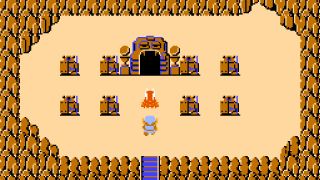
Sometimes it's as simple as rekindling the feel of discovery found in games and childhoods of years past. Spend a few minutes with Tunic and you'll see its love for the original Legend of Zelda, how it builds on the ways that game obfuscated itself to players. Much of Zelda's mystery was intentional, like not knowing where to detonate bombs to reveal hidden passages. Other parts were accidental, like the English-language manual mistakenly referencing one enemy's weakness to sound (which only worked using the Japanese Famicom controller's built-in microphone).
Sign up to the 12DOVE Newsletter
Weekly digests, tales from the communities you love, and more
This nostalgic era of inhabiting unintended consequences was equally formative for Jim Crawford, developer of the enigmatic and captivating Frog Fractions games. Crawford feels many modern games are laid too bare by massive marketing pushes, not to mention the ubiquity of video game conversations across social media and sites like this one. These days, it takes special effort to keep games mysterious - in fact, Crawford gave an excellent GDC talk on that very subject.
"My favorite secrets are the ones where you feel like you're breaking the game - or actually are breaking the game," Crawford tells me. "The minus world in Super Mario Bros. turns out to be pretty dull, but I spent hours exploring the glitch rooms in Metroid - they were broken, but just playable enough to feel like I was peering into an alternate universe with slightly different physical laws."
Small touches, bigger world
Built well enough, an intentional secret can have the same or better world-expanding effect as glitches like Minus World. Crawford cited the Secret Garden in Shadow of the Colossus as another example: it's a difficult-to-access area that subverts the standard upgrade system, thereby drawing attention to what it really means to give your character superhuman strength. Shouldice likes to think about secrets at a similar scale.

"My favorite secrets are ones where something new is revealed about the nature of the world," Shouldice says. "Finding a secret passage with some treasure in it is nice, but the realization that the world even has secret passages to begin with is what's really exciting. FEZ, for instance, has secrets that are truly revelatory moments.
"When I'm playing games I'll sometimes find myself keeping mental lists of challenges I'm trying to overcome, and rewards I'm looking forward to getting. Not knowing how all those things interconnect and theorizing on how they might is thrilling. There's a certain kind of satisfaction from seeing those connections revealing themselves, but at that point the game shrinks. It's solved, and the mystery fades. I'm happier when I'm wildly speculating about the mysterious door in the mountains than I am realizing it's just got some slightly better armour behind it."
"Sometimes you’re having a silent conversation with the player, winking and nodding as they unravel your secret riddle."
Working on hidden parts of the game can be freeing for designers themselves, allowing them to be "trickier and subtler" as Shouldice says than they otherwise might dare; it's frustrating to lose the main thread of the game, but voluntarily searching for little loose ends to pull at feels invigorating.
"If someone has followed your breadcrumb trail far enough, you’ll know they are the sort of person who is willing to play along," Shouldice says. "I guess that’s actually a different type of secret: often you’re pretending there’s no designer at all, and the player is discovering something truly hidden, but sometimes you’re having a silent conversation with the player, winking and nodding as they unravel your secret riddle."
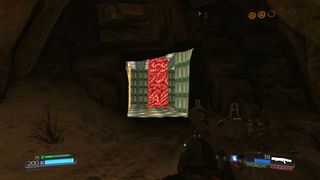
Crafting the developer's half of that silent conversation can be kind of intoxicating; Shouldice admitted that it's easy to spend "way too much time" on it. But there needs to be enough regular game for discovering the hidden parts to feel special. How much less fun would Frog Fractions be if it was called ‘Discover All The Secrets: The Game’, even if that's a more accurate title? Way less fun.
"Secrets are like garnishes or frosting; they might be your favourite part, but they're special because of the context they exist in," Shouldice says.
Of course, you could always go the other way. Returning to Marty Stratton, laughing about the not-really-rivalry between id and Machine Games, he imagines a future where both studios disregard Shouldice's culinary wisdom. Instead, they keep committing to more and more elaborate secrets at the expense of ever actually working on the regular game. "Pretty soon it's just gonna be the first level in glorious detail and then the rest of the game is all retro. We'll build it a lot faster, for sure."
I mean, I'd play it.
I got a BA in journalism from Central Michigan University - though the best education I received there was from CM Life, its student-run newspaper. Long before that, I started pursuing my degree in video games by bugging my older brother to let me play Zelda on the Super Nintendo. I've previously been a news intern for GameSpot, a news writer for CVG, and now I'm a staff writer here at GamesRadar.

